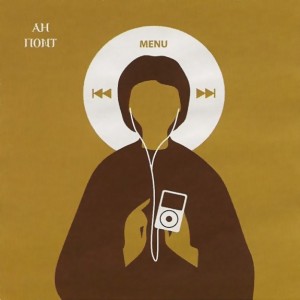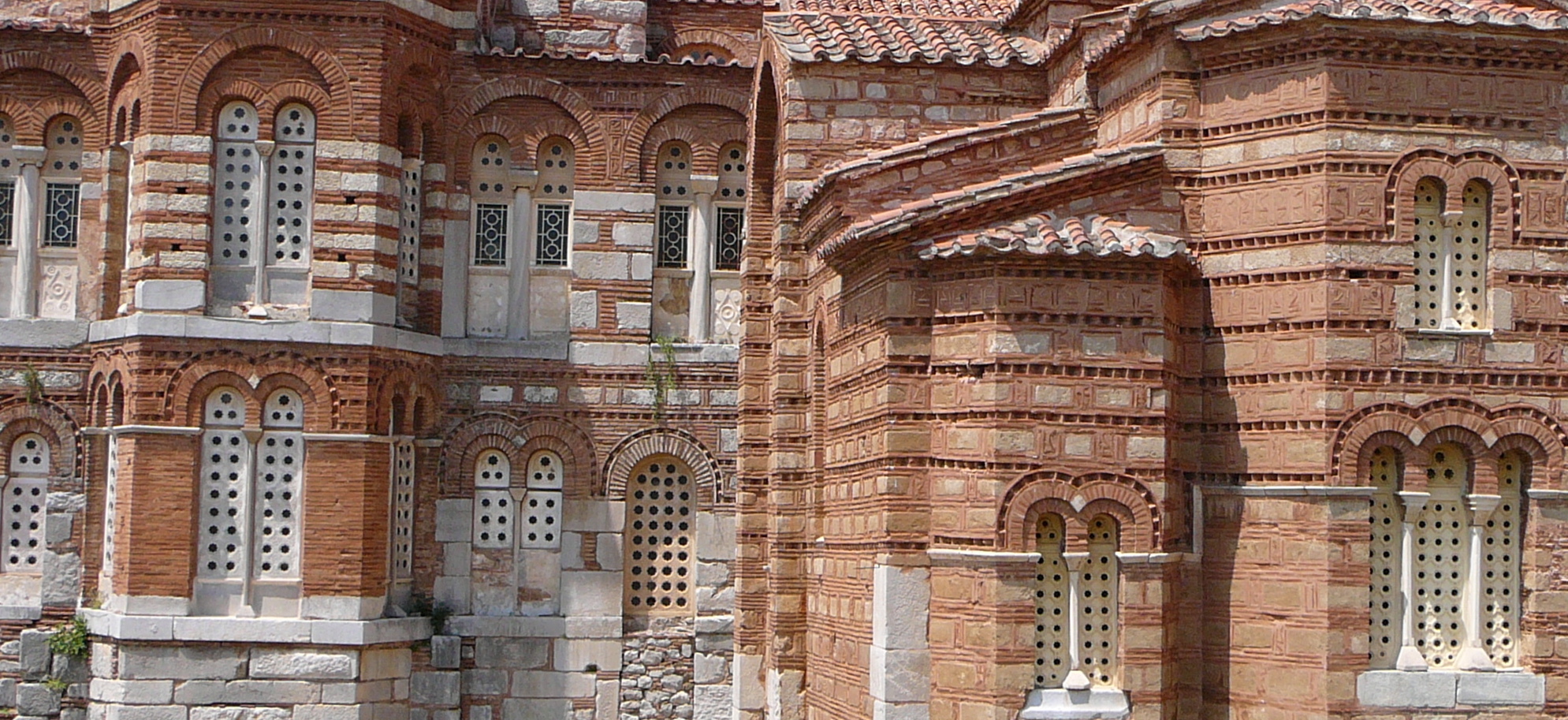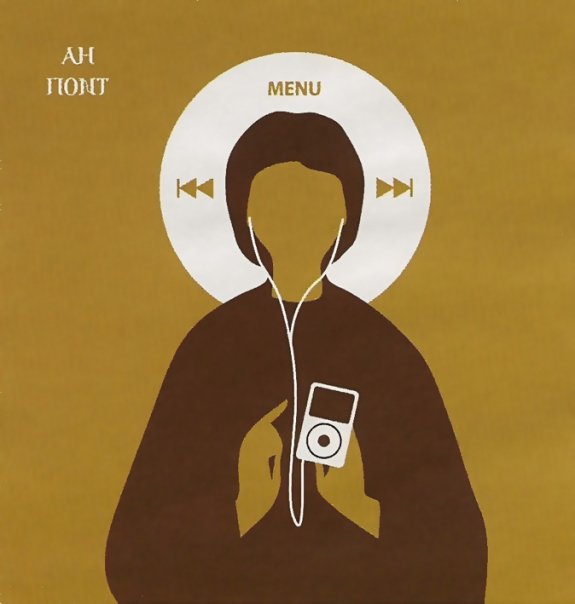Episodes

Thursday Feb 06, 2025
129: Labor organizations and collective action, with Sarah Bond
Thursday Feb 06, 2025
Thursday Feb 06, 2025
A conversation with Sarah Bond (University of Iowa) about organized labor groups in the Roman empire. Ancient occupational groups often formed associations (sometimes called collegia) which are often regarded as little more than dining, cult, and burial societies. In her new book, Strike: Labor Unions, and Resistance in the Roman Empire (Yale University Press 2025), Sarah Bond argues that they sometimes engaged in collective action and bargaining. These continued in existence into late antiquity and possibly beyond. Also, check out Sarah's blog History from Below and her contributions to Hyperallergic.

Thursday Jan 23, 2025
128. Constantinople as seen by its inhabitants, with Paul Magdalino
Thursday Jan 23, 2025
Thursday Jan 23, 2025
A conversation with Paul Magdalino (St. Andrews and Koç University) about the literary traditions and genres that Constantinopolitans developed to talk about the origins, history, cosmic importance, and superlative beauty of their city -- the City. The conversation touches on themes in Paul's recent book, Roman Constantinople in Byzantine Perspective: The Memorial and Aesthetic Rediscovery of Constantine's Beautiful City, from Late Antiquity to the Renaissance (Brill 2024). Like the book, our discussion culminates with the majestic oration Byzantios by Theodoros Metochites.

Thursday Jan 09, 2025
127. The genetic history of Rome, with Hannah Moots
Thursday Jan 09, 2025
Thursday Jan 09, 2025
A conversation with Hannah Moots (Center for Palaeogenetics, Stockholm) about paleogenetic research, its goals, methods, and conclusions. What does it mean to study ancient DNA, and what does it tell us about human history? The conversation is based on an article co-authored by Hannah and many other collaborators entitled "Ancient Rome: A Genetic Crossroads of Europe and the Mediterranean," Science 366 (2019) 708-714.

Thursday Dec 26, 2024
126. Can scholars and clerics be manly?, with Maroula Perisanidi
Thursday Dec 26, 2024
Thursday Dec 26, 2024
A conversation with Maroula Perisanidi (University of Leeds) about the distinctive kind of masculinity that was fashioned by scholars and priests in the eleventh and twelfth centuries, the challenges and deficits that it faced, and the masculine capital that men in those occupations tried to amass and then spend. The conversation is based on Maroula's just published book Masculinity in Byzantium, c. 1000-1200: Scholars, Clerics and Violence (Cambridge University Press 2024).

Thursday Dec 12, 2024
Thursday Dec 12, 2024
A conversation with Maggie Popkin (Case Western Reserve University) about souvenirs in the Roman world, how they tie in with city identities and city branding, and the experience of travel. These portable objects shaped how people thought of places and the Roman world as a whole, from its attractions and experiences to its religious cults. The conversation is based on Maggie's book Souvenirs and the Experience of Empire in Ancient Rome (Cambridge University Press 2022).

Thursday Nov 28, 2024
124. Shadow empires, with Thomas Barfield
Thursday Nov 28, 2024
Thursday Nov 28, 2024
A conversation with Thomas Barfield (Boston University) about a distinctive category of empires that he has proposed in a new book, Shadow Empires: An Alternative Imperial History (Princeton University Press 2023). These are empire that derive a significant part of their revenues or symbolic capital not from lands that they rule directly but by extorting them from other empires, from control over trade routes, or from the ruins of previous states. During its long history, Romanía dealt with a number of these "exogenous" empires, including the Huns, Venetians, and Rus'.

Thursday Nov 14, 2024
Thursday Nov 14, 2024
A conversation with Nancy Bisaha (Vassar College) about the origins of the idea of "Europe" as a place of identity and not just geography. One of its first theorists was the Italian humanist Aeneas Piccolomini (later pope Pius II), who was in part reacting to the fall of Constantinople to the Ottoman Turks. The problem of whom to include and exclude as Europeans was there from the start. We talk about Aeneas himself and the siege of the City. The conversation is based on Nancy's recent book, From Christians to Europeans: Pope Pius II and the Concept of the Modern Western Identity (Routledge 2023).

Thursday Oct 31, 2024
122. Latin words in ancient and Byzantine Greek, with Eleanor Dickey
Thursday Oct 31, 2024
Thursday Oct 31, 2024
A conversation with Eleanor Dickey (University of Reading) on Latin words in ancient and Byzantine Greek. Eleanor has tracked them down and compiled them in a specialized dictionary, where she also offers new arguments about when, how, and why they were borrowed by Greek-speakers. It reaches down to 600 AD, but many of them survived later too, even into modern spoken Greek. The conversation is based on that publication: Latin Loanwords in Ancient Greek: A Lexicon and Analysis (Cambridge University Press 2023).

Thursday Jul 11, 2024
Thursday Jul 11, 2024
A conversation with Emily Neumeier (Temple University) about Ali Pasha of Ioannina (d. 1822), a powerful Ottoman governor of Albanian origin who created a quasi-independent realm at a time when the Ottoman empire was feared to be collapsing. We talk about how he crated his own brand-image, in part by forging closer relations with his Christian Greek subjects and also through archaeological work and use of antiquities. His was an almost post-imperial world, but the nation-state had not yet arrived. We also talk about the concept of the "post-Byzantine," which is used, especially in art history, for works of this period. The conversation is based on three of Emily's articles -- "Mediating Legacies of Empire," "Rivaling Elgin," and "Spoils for the New Pyrrhus" -- that you can find on her academia webpage.

Thursday Jun 27, 2024
120. Dioskouros of Alexandria, Or the making of a Church villain, with Volker Menze
Thursday Jun 27, 2024
Thursday Jun 27, 2024
A conversation with Volker Menze (Central European University) about the fifth-century patriarch Dioskouros of Alexandria, what we really know about him, and why he was demonized in the western traditions. A close reading of the Council Acts suggests a different picture: a bishop who thought he was doing right by the established creed and following the directives of the emperor suddenly found himself in the hot seat. The conversation is based on Volker's book Patriarch Dioscorus of Alexandria: The Last Pharaoh and Ecclesiastical Politics in the Later Roman Empire (Oxford University Press 2023).

